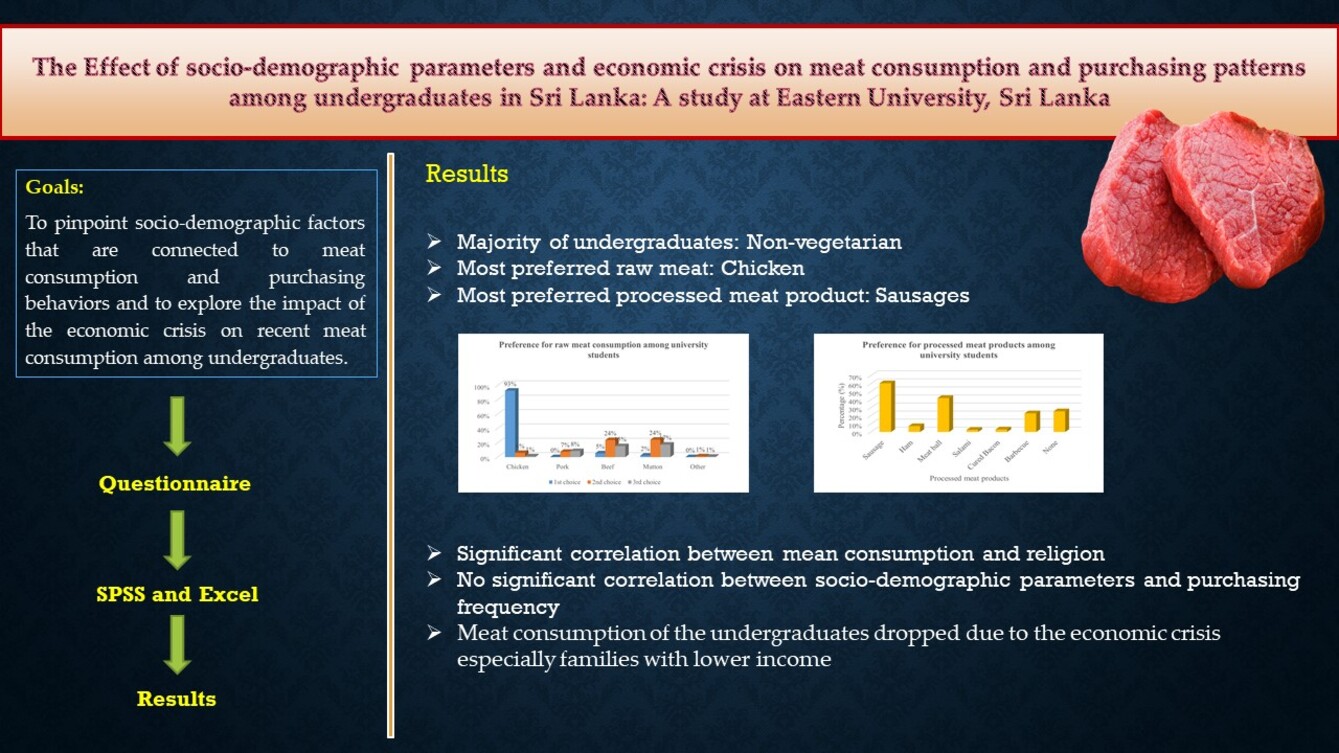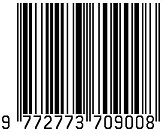The Effect of Socio-demographic Parameters and Economic Crisis on Meat Consumption and Purchasing Patterns among Undergraduates in Sri Lanka: A Study in Eastern University, Sri Lanka.
DOI:
https://doi.org/10.31357/ait.v3i2.7340Keywords:
awareness, consumption, income, meat, purchasingAbstract
Even though the university student population is a critical generation in the future of a country, their actual food consumption patterns of this generation are little addressed. Therefore, the objectives of this present study are (1) to identify the effects of socio-demographic variables on meat consumption and purchasing patterns and (2) to investigate the effects of the recent economic crisis on meat consumption among university undergraduates in Sri Lanka. A pre-tested questionnaire was used to gather information from 195 undergraduates. There are 97.44% of respondents consume at least one type of meat. Only 2.56% of respondents do not consume any type of meat. Hence, they were all categorized as vegetarians. 85.13% of respondents have established their meat consumption pattern at the age before 10. The most preferred raw meat type is chicken and the processed meat product is sausages. The majority of respondents purchase both raw meat and processed meat once a week. There is no significant correlation between purchasing frequency and socio-demographic variables. However, Pork, beef, and mutton consumption has a significant correlation with religion. Health, preference, financial capability, and religious matters were the most popular reasons considered during the purchasing of meat. The majority of students are aware of knowledge regarding meat consumption and purchasing. Meat consumption of undergraduates dropped due to the economic crisis particularly families with lower income. Findings from this study may be helpful in properly organizing nutritional programs for undergraduates.

Downloads
Published
How to Cite
Issue
Section
Categories
License
Copyright (c) 2024 Vahaful M.F. Nisath, Tharinda D. De Silva, L. Vanajah, M. Pagthinathan, P. Mithushan

This work is licensed under a Creative Commons Attribution-NonCommercial-NoDerivatives 4.0 International License.
The Authors hold the copyright of their manuscripts, and all articles are circulated under the terms of the Creative Commons Attribution License, which permits unrestricted use, distribution, and reproduction in any medium, as long as that the original work is properly cited.
The use of general descriptive names, trade names, trademarks, and so forth in this publication, even if not specifically identified, does not imply that these names are not protected by the relevant laws and regulations. The authors are responsible for securing any permissions needed for the reuse of copyrighted materials included in the manuscript.




